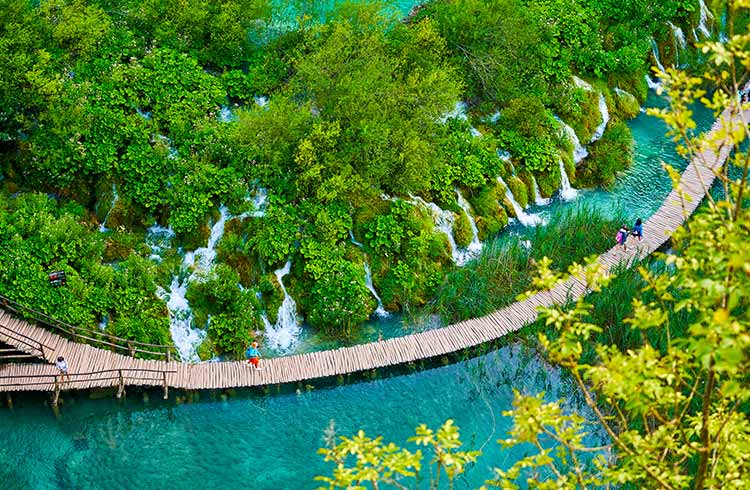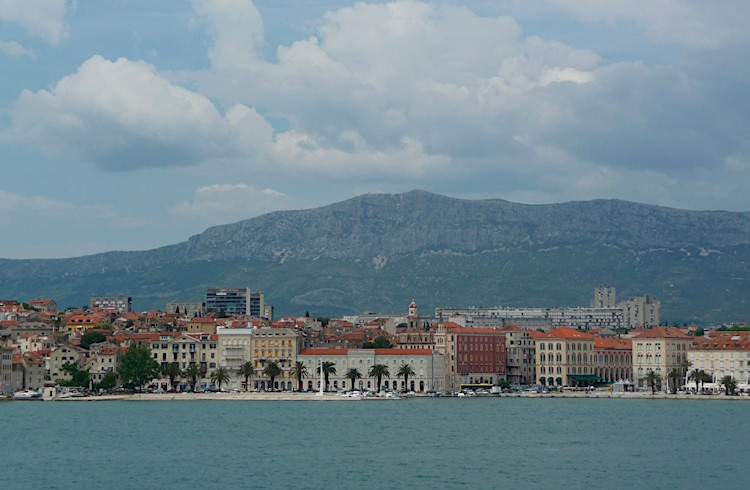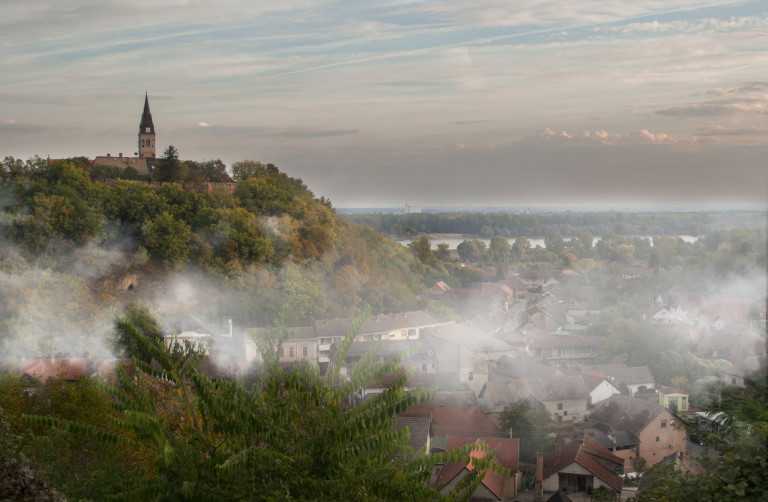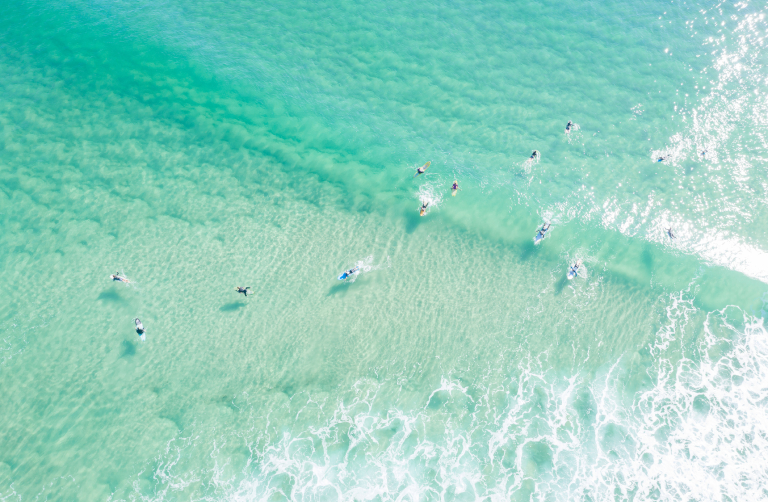Is Croatia Safe to Visit in 2025? Essential Travel Tips
Is it safe to travel to Croatia right now? Here are the crime, scams, and transport safety tips to know before you go.
 Photo © Getty Images/Sebastian Condrea
Photo © Getty Images/Sebastian Condrea
Inspired by my Croatian heritage on my grandfather’s side, I first traveled to Croatia to study in 2015. I stepped off the plane in Dubrovnik not knowing anyone and only knowing a couple of basic Croatian phrases that my grandfather taught me. It wasn’t long before the hospitable, community-oriented culture welcomed me with open arms. This sense of safety in Croatia is one of the reasons I decided to make this country my permanent home.
Since 2017, I’ve been based in Dubrovnik while traveling throughout Croatia and beyond. As well as traveling alone, I’ve led group tours to nearly every corner of the country. From my collective experience of traveling throughout Europe, Asia, and the US, I can say that Croatia is the safest country I’ve visited.
However, there are some essential safety tips you should familiarize yourself with before planning a trip to Croatia.
- Is Croatia a safe country?
- Crime in Croatia
- Emergency numbers
- Scams in Croatia
- Transport safety: getting around in Croatia
- Outdoor safety tips
- Earthquakes in Croatia
- Nightlife safety in Croatia
- Is Croatia safe for family travel?
- Is Croatia safe for female travelers?
- Is Croatia safe for LGBTQ+ travelers?
Is Croatia a safe country?
Don’t just take my word for it. Croatia ranked #15 out of 163 countries in the 2024 Global Peace Index and has a Level 1 (Exercise Normal Precautions) travel advisory rating from the US State Department. So, yes – Croatia is considered very safe.
Crime in Croatia
The crime rate in Croatia is relatively low, and pickpocketing is less common compared to other European countries. However, travelers can be an easy target for petty theft in Croatia. Keep your belongings close to you and avoid carrying large sums of cash.
In January 2023, Croatia adopted the euro as its currency, replacing the kuna. Avoid carrying around more than US $250 (€240) at once.
Be mindful of your belongings in your accommodation and always keep your bags locked and your passport in a safe place. Try to avoid leaving money and valuables unattended while on the beach – always ask a friend or family member to watch your belongings while you go for a swim.
In a 2025 survey, Croatia was ranked the safest place for walking at night compared to 40 other European countries. Streets are generally well-lit and well-patrolled, especially in touristed areas. Still, it’s important to stay alert and avoid deserted or dimly lit areas.
Emergency numbers
- 112: General emergency number (toll-free)
- 192: Police
- 193: Fire department
- 194: Emergency medical help
- 195: Maritime search and rescue
- 1987: Help on the road
Scams in Croatia
There aren’t many major travel scams in Croatia, but a few tips can save you from getting ripped off.
Use official banks to exchange or take out money
There are many “Euronet” ATMs and foreign exchange booths throughout Croatia; however, you’ll get a better exchange rate and probably a lower fee if you take out money from an official bank or one of its ATMs.
Avoid being overcharged
Although it doesn’t happen often, there are cases when owners may overcharge tourists, even for a coffee or couple of drinks. It is required by law that all customers receive a receipt, and this is also a way to double-check you were not overcharged.
Ask the taxi to keep the meter on
Look out for taxi drivers overcharging you. You can avoid this by asking for a price to your destination before getting in the taxi and asking the driver to keep the meter on during the journey.
The Uber and Bolt ride-share apps are available in Croatia and give you a set price in advance of the journey.
Transport safety: getting around in Croatia
While Croatia’s slower train system isn’t the most convenient option, you can easily travel by road or boat.
Traveling safely by bus
The most affordable way to travel around mainland Croatia is by bus – the network is extensive and reliable. However, make sure you get back to the bus on time at rest stops, as Croatian buses are notorious for leaving tourists behind.
Traveling by car
To rent a car in Croatia you will need a valid driver’s license from your home country. If your license is not in the Latin (Roman) alphabet, you will also need an International Driving Permit. You’ll need a form of ID such as a passport, and a debit or credit card to make a security deposit.
Keep in mind, they drive on the right-hand side of the road in Croatia.
Though the road network in Croatia is well-maintained in most cases, roads can be narrow, sometimes along cliffs, and you have to look out for careless drivers who don’t follow the speed limit.
The police in Croatia may perform random drunk-driving checks. Croatia has a zero-tolerance attitude to drinking and driving if you are under 24, and the limit is 0.05% of alcohol if you are over 24.
Get more tips on driving in Croatia here.
Traveling by sea
Traveling by boat is a great way to explore Croatia’s Adriatic Sea coast. You can visit any of the islands using public or private ferries. You can also hire a skippered yacht to sail through Croatia’s islands with a group of friends or rent a speed boat for the day.
You can skipper yourself if you have valid Navigational and VHF radio licenses and are over 18 years old. Keep in mind it’s illegal to consume alcohol while sailing, and penalties are stiff.

Outdoor safety tips
Croatia is an ideal destination for adventure travelers. It is critical that travelers follow a few common-sense safety precautions while enjoying any adventure activities.
Cliff jumping
The Adriatic coast is filled with hidden coves ideal for cliff jumping, but in some areas, rocks are not visible from above, or loose gravel makes the cliffs unstable, and warning signs may not be in place. To avoid the potential for serious injury, avoid jumping off rocks and cliffs, even if you see others jumping. Never dive in headfirst or jump or dive off a bridge.
Sea urchins
Watch out for sea urchins (known as sea hedgehogs in Croatia). They are often found on rocks around shallow water. They don’t bite and are not a deadly threat; however, their spines can cause painful swelling, and can get stuck under your skin, similar to a large splinter. So, you’ll want to avoid stepping on them or trying to pick them up. Wearing water shoes or sandals is a good idea.
Hiking
There are many incredible hikes in Croatia. It’s best to hike with a guide or group of friends, as it’s easy to get lost when you are alone.
Always stay on the main path, as some remote areas in the mountains still have land mines, or unexploded bombs, leftover from the Croatian War of Independence in the 1990s. It’s also important to stay on marked walking paths or boardwalks, such as at Plitvice Lakes, to avoid slippery cliffs and to preserve the park.
Excessive sun
Temperatures in Croatia can reach the mid-90s°F (mid 30s °C) in the summer, but it can feel even hotter because of the intense sun. Always wear sunscreen and be cautious of exposure to excessive heat and direct sun for long periods of time. Wear a hat, try to sit in the shade, and make sure you drink lots of water, especially when the sun is the strongest, from 10am to 3pm.
Earthquakes in Croatia
Croatia experiences a fair amount of seismic activity, especially near Zagreb and along the coast, and damaging earthquakes do sometimes occur. On December 29, 2020, a 6.4 magnitude quake struck near the town of Petrinja, about 30mi (48km) south of Zagreb. Widespread damage was reported along with at least five deaths. In March of 2020, Zagreb was struck by a 5.3 magnitude quake.
When traveling in earthquake-prone areas, plan ahead by carrying a small emergency kit and your important documents with you and identifying a safe evacuation point. During an earthquake, find a safe place indoors, away from windows, and ride it out. After the quake, head to your evacuation point, and get in touch with your emergency contacts. Be prepared for aftershocks, which are sometimes larger than the original quake.
Planning a trip to Croatia? Find out how travel insurance can cover adventure activities, lost or stolen baggage, sudden illness and more.
Nightlife safety in Croatia
Cafe bars are a big part of Croatian nightlife and are generally safe. However, you need to take precautions as you would elsewhere, such as never letting your drink out of sight, and going out in groups.
Split and Zagreb have the best nightlife options, as they are the biggest cities in Croatia. However, it’s best to avoid “gentlemen’s clubs”. Some of these venues are infamous for overcharging tourists for drinks or services and threatening those who refuse to pay.
It’s also best to avoid nightclubs, bars, and venues that draw in rowdy football fans, as fights often break out between opposing team supporters.
Is Croatia safe for family travel?
Croatia is a popular destination for families, but the country isn’t necessarily child-proof. Be mindful of watching your child on stairs without railings, beaches without lifeguards, and narrow sidewalks close to oncoming traffic. Also, note that many buildings and apartments do not have ramps or elevators, so call ahead and ask your accommodation provider if you plan on bringing a stroller.
Is Croatia safe for female travelers?
I’ve traveled a lot alone around Croatia and found it to be safe. However, women are not immune to cat-calling. Some men may persistently try to talk to you if they see you’re sitting alone. Just be polite but firm if you are not interested in talking to them. Accommodation in hostels, private apartment rentals, and hotels are all safe for solo travelers, provided you use normal common sense.
Is Croatia safe for LGBTQ+ travelers?
Yes, LGBTQ+ travelers can feel safe here. Same-sex marriage is legal in Croatia. And while most of the gay bars are in the capital of Zagreb, there are plenty of LGBTQ+ friendly places that welcome travelers every year throughout Croatia.
However, nearly 80% of the Croatian population is Catholic and in some of the smaller towns and villages you might find locals are more conservative.
Some people may stare if they see public displays of affection between same-sex couples.
Related articles
Simple and flexible travel insurance
You can buy at home or while traveling, and claim online from anywhere in the world. With 150+ adventure activities covered and 24/7 emergency assistance.
Get a quote

No Comments